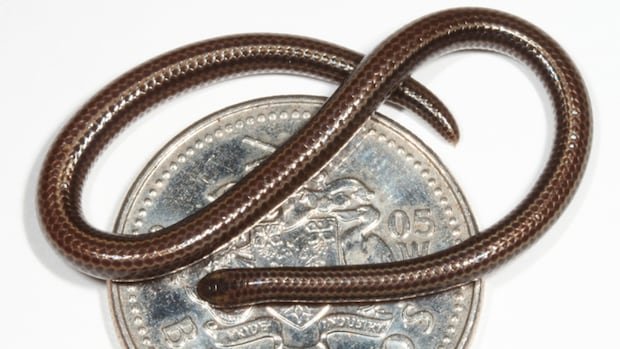Scientists have rediscovered the world’s smallest snake, previously thought to be extinct, under a rock in Barbados. Connor Blades, an ecologist in Barbados, expressed excitement over the find, highlighting its significance after a two-decade absence. The Barbados threadsnake, measuring around 10 centimeters in length and two millimeters in width, is endemic to the island and primarily feeds on termites and termite eggs.
The rediscovery of this tiny snake is a positive indicator for Barbados’ biodiversity, which has faced significant habitat loss over the years. Re:wild, a non-profit organization dedicated to finding and protecting species considered “lost to science,” has played a crucial role in discovering several rare species, including the Barbados threadsnake.
The snake’s elusive nature, living in burrows and being rarely documented, has made it a challenging species to study. Initially identified in 1889 but confirmed as a unique species in 2008, the Barbados threadsnake is now recognized as the world’s smallest snake. Ongoing conservation efforts aim to safeguard its habitat and ensure its continued presence in the ecosystem.
Blades’ discovery of the snake underscores the importance of preserving natural habitats like the forest where it was found. Despite challenges, efforts to increase tree cover in Barbados have shown positive results, emphasizing the significance of protecting unique species like the Barbados threadsnake to maintain global biodiversity.

